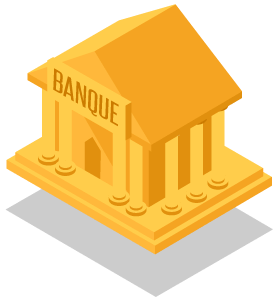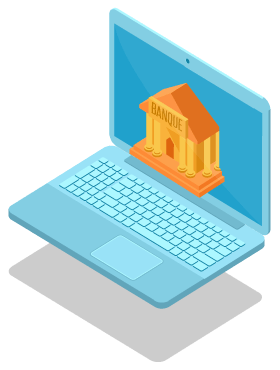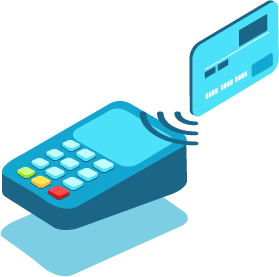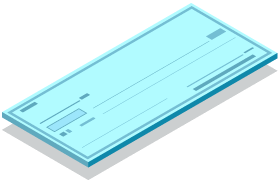Banking in France: Banks, Accounts and Credit Cards

Want to subscribe to a French energy offer?
Our English-speaking Selectra advisors are here to help you find the right energy plan.
(foreign IBANs accepted) at [email protected]. You can contact us also:

If you have just moved to France, or are planning on doing so soon, one of your most important mission will be to open a bank account, and with that, get familiar with the banking system in France. All you need to know about banks, credit cards and more is in the following guide.
- To sum things up
- You have 3 types of banks to choose from in France: traditional, online and digital.
- To open an account in France, you will have to fulfil certain conditions and provide documentation.
- You have various means of payments to choose from in France, although bank cards are the most widespread.
Banks in France: what are your options?
Your options are far from limited when it comes to choosing a bank in France. Physical or online, French or International... Find out about them below.
List of French banks
There are 8 main French banks, for which agencies are available nationwide.
If you are comfortable reading through contracts in French and plan on staying in France long term, one of the following banks may be just right for you:

- Crédit Agricole (CA)
- BNP Paribas
- Société Générale
- CIC
- Caisse d'Epargne (CE)
- Banque Populaire (BP)
- Crédit Mutuel
- La Banque Postale
- LCL
List of International banks in France
If you prefer going for an international bank, you can choose from the following:
- Axa Banque
- Barclays France
- Deutsche Bank France
- HSBC France
- JP Morgan France
- Citibank
If you don't feel completely comfortable managing a bank account in French yet, HSBC is a solid option for you. Indeed, HSCB offers all its services in English, and an English-speaking customer service, which will make operating your finances much easier.
Bank Opening hours in FranceWhile every bank can set its opening hours differently, the typical schedule is from 8.30 or 9am to 5 or 5.30pm, Monday to Friday, with some branches also opened on Saturday mornings. Beware that some banks also close during lunchtime, so be sure to check hours online before organising a trip to the bank.
List of Online banks in France

An online bank is defined by the absence of physical agencies. Everything happens on the internet via the online banking website or a mobile app. This mode of operation then allows more room for maneuver.
What's more, as online banks don't have to deal with structural costs, they can provide cheaper offers than traditional banks.
If you would rather opt for an online bank, below are your options:
- Fortuneo
- Monabanq
- ING Direct
- Boursorama Banque
- Hello Banq
- BfroBank
Note that French online bank do not accept non-residents - exept Boursorama Banque. Moreover, all French online banks, including Boursorama Banque, will ask you for a French IBAN in your name to complete the opening of the account.
How to choose a bank in France
As we have seen, there is a huge offer of banks and banking institutions in France, and while this gives you a lot of options to choose from, such as plethora can also make it difficult to find which bank will be right for you.
While it is near to impossible to say that one bank is the best in all areas, you could consider comparing the factors which matter most to you, in order to make your choice and find out which is the top bank in France for you. For instance, you should look for the bank which fulfills the following criteria:
- Has the bank got at least one branch in your local area?
- Does it offers easy-to-reach assistance, online by telephone?
- Will the bank be able to provide you customer service in English, if needed? (only HSBC)
- What are the service fees? And the mortgage/savings rates?
- Does the bank provide the compte non-résident?
- Will it be easy, and inexpensive, to make international transfer? And are there comission fees for withdrawing money abroad?
- What type of credit or debit card does the bank offer?
- What are the welcome offers provided by the bank?
Below is a list of a few banks you can choose from in France, with their main features and conditions:
| Bank | For more info | Main characteristics |
|---|---|---|

N26 |
More info on N26 |
|

HSBC |
More info on HSBC |
|

Société Générale |
More info on Societe Generale |
|

Boursorama Banque |
More info on Boursorama |
|

Nickel |
More info on Nickel |
|
You can also find guidance in this guide which compares online banks in France (in French).
French bank account
The process of opening and operating a French bank account isn't complicated - just follow this guide!
Types of bank accounts in France
First off, you may want to make sure you understand the different types of bank accounts in France.
- The current account (compte courant in French) is the standard, basic bank account which is used for managing everyday finances. Funds are easy to access and typically doens't incur fees.
- The general savings account (Livret in French)is an account used for the storage of long-term funds, which you don't plan for immediate use. Funds are still easily accessible, and can be transferred to and from your current account.
- The long-term savings account (such as Plan Epargne Logement or Compte d’Épargne Logement) is an account with higher interest, used for saving up funds in order to buy a French house or apartment for instance.
Opening an account in France
Setting up a French bank account can be done upon your arrival in France, but in some cases it can even be done online, before you move. This is the case of HSBC for instance, which allows you to set up your French account prior to arrival, and 100% online.
You are legally allowed to open a bank account in France from the moment you have the status of official French resident or if you are fiscally resided in France. If you're not in one of these cases, some banks offer a "compte non-résident", for those who are not planning to become long-term French residents. These accounts often come with stricter conditions, for instance imposing a minimum deposit amount, requiring you to be an EU national, etc. More about bank options for non-residents in this other article (in French).
This said, banks have the right to refuse your application and are not legally obliged to justify their denial. Having a job, a French address and holdling a resident permit instead of just a visa will give you far higher chances of seeing your application approved.
It is important to note that having a French bank account and IBAN will be mandatory if you want to set up a French gas or electricity account and to get a French mobile phone and Internet plan in France.
It is essential to gather the following documents before you set foot in the bank branch:
- Passport or ID card
- Proof of legal French residence, if you are not an EU citizen (i.e. your visa or work permit)
- Proof of a French address (e.g. an energy bill)
- Proof of revenue and status (employment contract, student card...)
- Birth certificate, in some cases
If you aren't completely comfortable with speaking and understanding French yet, ask for a French friend to come with you, or take the documents home with you so you get time to translate it in order to be fully aware of all the T&Cs before you sign anything. In some cases, the process can be done online, which might make things easier and quicker for you.
Means of payment in France
You will often have more than one payment option to choose from for your purchases in France, but with some conditions and exceptions, as explained below.
Using Credit cards in France

Paying by card in France has become a pretty widespread, and you can generally pay by bank card in all grocery stores, bakeries and shopping centres...
You can find a list of the French ATMs in your area online, either via Google Maps or on your bank's website, which should have a branch finder and ATM search engine.
You will also find ATM machines readily available and widespread in cities, airports, train stations, etc. There generally isn't a limit on withdrawals and you can use Visa and Mastercard alike.
Beware of private ATMs though, which, as opposed to bank ATMs, will very likely charge a fee for withdrawals.
Using Cash in France

Cash (euro coins and notes) are accepted more or less everywhere you go in France. It may be your only option of payment in some scenarios, for small transactions (some places only accept card for transactions above a certain amount, such a €1 or €10), on market stalls or in some restaurants which don't accept card.
Look out for the Visa and Mastercard sticker on the front of an establishment, or ask the seller before you purchase anyhting if you aren't sure whether cash is your only option.
Cheques in France: are they still in use?

Although still in use and somewhat popular, cheques in France are becoming a lesser used paying method today.
They can be usually be used to pay utility bills, rent, as well as services such as a plumber or electrician intervention, and furniture or house appliances (but always check with the seller or your provider whether this is the case). Don't hesitate to ask for help if you even have a doubt on how to spell out amounts in French.